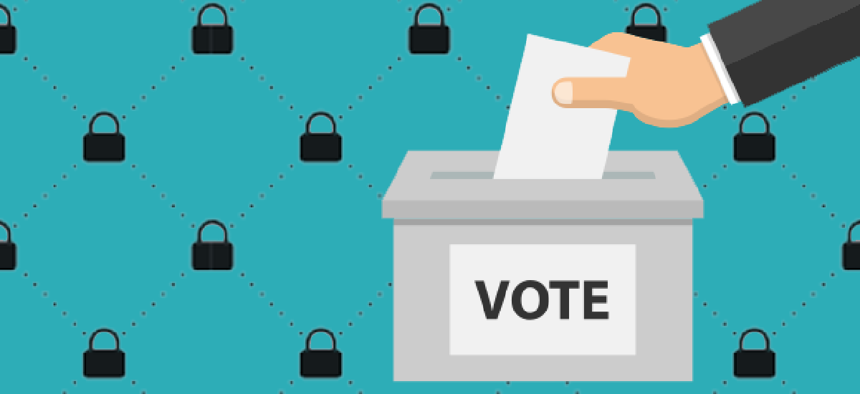Back to paper ballots

Paper ballots should be required in all states by the 2020 presidential election, according to new report.
To guarantee the secrecy, security and verifiability of elections, elections should revert back to human-readable paper ballots, according to a new report from the National Academies of Science, Engineering and Medicine.
Five states -- Georgia, Delaware, Louisiana, New Jersey and South Carolina -- use touchscreen, computerized machines that do not produce paper records.
“Elections in the United States are subject to aging equipment, targeting by external actors and a lack of sustained funding as well as being subject to growing expectations that voting should be more accessible, convenient and secure,” said Michael McRobbie, president of Indiana University and co-chair of the committee that conducted the two-year study and wrote the report, Securing the Vote: Protecting American Democracy. “Election systems in the future must not only be secure but also adaptive and resilient,” he said.
The report specifically recommended states use human-readable paper ballots, which can be marked by hand or machine. Voting machines that do not provide the capacity for independent auditing should be removed from service as soon as possible.
The report authors urged the Elections Assistance Commission to approve the latest version of the Voluntary Voting System Guidelines if they match those proposed in September 2017. They also recommended Congress continue to appropriate funds to improve elections systems and require state and local elections officials send EAC data on elections systems failures.
Risk-limiting audits should be conducted prior to the certification of election results. States and local jurisdictions should start with pilot programs and work up to full implementation of risk-limiting audits within the next decade, the report said.
Internet voting should not be used, the report stresses. “Although Internet voting offers convenience, it introduces new risks with regard to the integrity and confidentiality of votes as well as the potential for cyberattacks that could make it difficult or impossible for voters to cast their ballots within the voting period,” the authors said. "Furthermore, the casting of a ballot is an anonymous one-time event. This scenario makes it difficult to identify and correct a miscast vote.”
Additionally, the report recommended Congress authorize and fund research relevant to the administration, conduct and performance of elections.
NEXT STORY: Anatomy of a bot campaign





